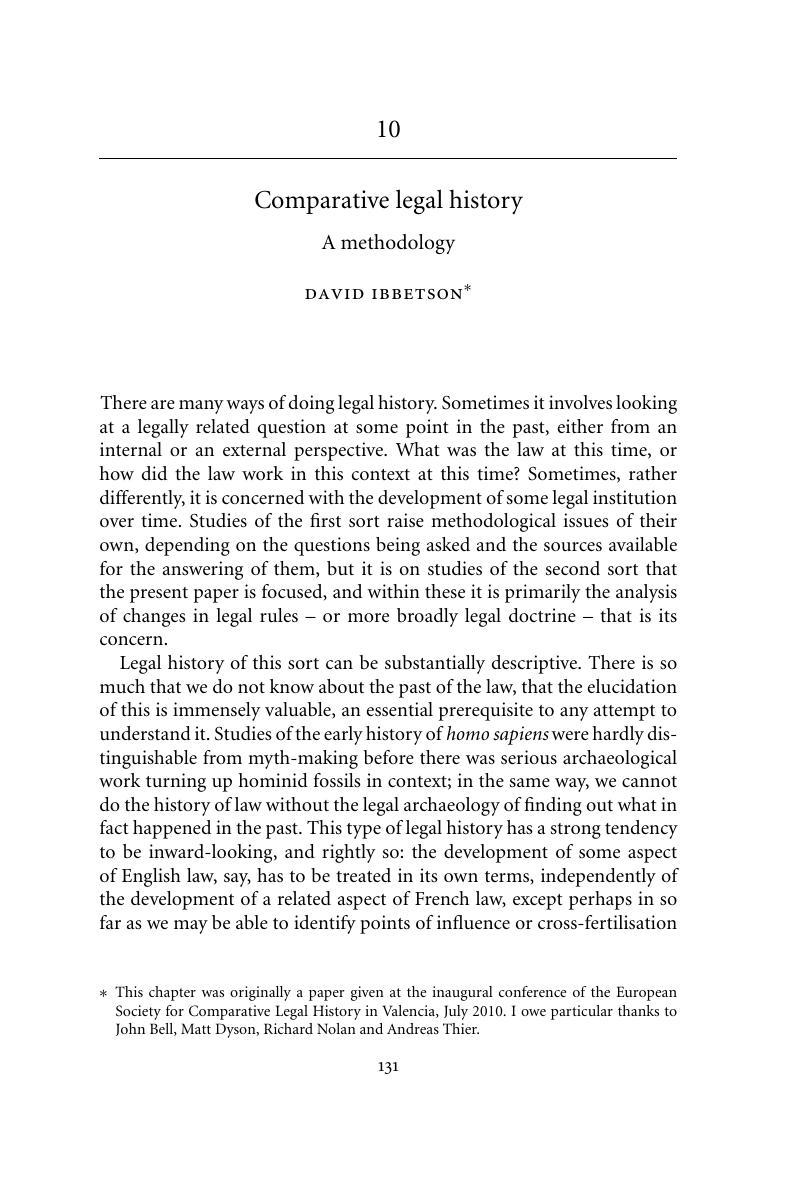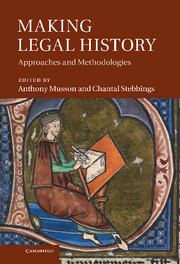Book contents
- Making Legal History
- Making Legal History
- Copyright page
- Contents
- Figures
- Tables
- Abbreviations
- 1 Introduction
- 2 Reflections on ‘doing’ legal history
- 3 Editing law reportsand doing legal history
- 4 The indispensability of manuscript case notes to eighteenth-century barristers and judges
- 5 Judging judges
- 6 Benefits and barriers
- 7 Methodology in legal history
- 8 The methodological debatesin German-speaking Europe (1960–1990)
- 9 Exploring the law in medievalminds
- 10 Comparative legal history
- 11 ‘They put to the torture all the ancient monuments’
- 12 The politics of historiography and the taxonomies of the colonial past
- 13 Lay legal history
- 14 Antiquarianism and legal history
- 15 Re-examining King John and Magna Carta
- 16 Visual sources
- 17 Sanctity, superstition and the death of Sarah Jacob
- Index
10 - Comparative legal history
A methodology
Published online by Cambridge University Press: 05 February 2012
- Making Legal History
- Making Legal History
- Copyright page
- Contents
- Figures
- Tables
- Abbreviations
- 1 Introduction
- 2 Reflections on ‘doing’ legal history
- 3 Editing law reportsand doing legal history
- 4 The indispensability of manuscript case notes to eighteenth-century barristers and judges
- 5 Judging judges
- 6 Benefits and barriers
- 7 Methodology in legal history
- 8 The methodological debatesin German-speaking Europe (1960–1990)
- 9 Exploring the law in medievalminds
- 10 Comparative legal history
- 11 ‘They put to the torture all the ancient monuments’
- 12 The politics of historiography and the taxonomies of the colonial past
- 13 Lay legal history
- 14 Antiquarianism and legal history
- 15 Re-examining King John and Magna Carta
- 16 Visual sources
- 17 Sanctity, superstition and the death of Sarah Jacob
- Index
Summary

- Type
- Chapter
- Information
- Making Legal HistoryApproaches and Methodologies, pp. 131 - 145Publisher: Cambridge University PressPrint publication year: 2012
- 6
- Cited by

